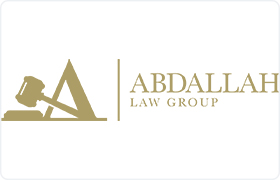Kings County, CA Eminent Domain Lawyers, page 3
Sponsored Law Firm
-
 x
x

Click For More Info:
-
Abdallah Law Group, P.C.
555 Capitol Mall Suite 766 Sacramento, CA 95814» view mapReal Estate Law #1 Sacramento Law Office
Abdallah Law Group is ready to fight for our clients. We provide comprehensive, individualized and affordable legal representation.
800-698-5801
Not enough matches for Kings Eminent Domain lawyer.
Below are all Kings lawyers.
Richard Crowley Conway
Child Custody, Divorce & Family Law, DUI-DWI, Criminal
Status: In Good Standing
Sarah Melissa Hacker
Employee Rights, Divorce & Family Law, Bankruptcy, Personal Injury
Status: In Good Standing Licensed: 19 Years
Michael Anthony Dias
Employee Rights, Corporate, Credit & Debt, Personal Injury
Status: In Good Standing Licensed: 28 Years
Robert Martin Dowd
Litigation, Civil Rights, Civil & Human Rights, Accident & Injury
Status: In Good Standing
Timothy Wade Jolly
Family Law, Trusts, Credit & Debt, Wills
Status: In Good Standing Licensed: 12 Years
 Mitchell Abdallah Sacramento, CA
Mitchell Abdallah Sacramento, CA